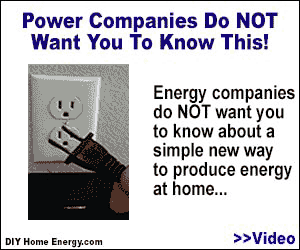The use of solar energy as a substitute for conventional energy sources is growing in popularity. Many households and companies are thinking about switching to solar power as the cost of solar panel installations keeps dropping. We'll look at the expenses, savings, and return on investment of solar electricity in this post.
Costs of Solar Power
The price to install a solar panel system can vary significantly based on a number of elements, such as the size of the system, the caliber of the solar panels, and the installation's location. Installing a solar panel system for a home might cost anywhere between $10,000 and $30,000. The price may be much higher for businesses.
Although while building a solar panel system can be expensive up front, there may be significant savings over time. Traditional energy sources' cost of producing electricity is likely going to rise over time, but solar energy's cost is presumably going to go down. In addition, a lot of governments and utilities provide rebates and incentives to help with the cost of installing solar panels.
Savings of Solar Power
One of the biggest advantages of solar power is the potential for significant savings on electricity bills. Once a solar panel system is installed, it can generate electricity for free, which can help homeowners and businesses save money on their electricity bills.
>> Click Here To Find Out How You Can Lower the Cost of Solar Panels by 85%
The potential for significant electricity bill savings is one of solar energy's key advantages. A solar panel system can supply power for free after installation, which can lower the cost of electricity for both homes and businesses.
The amount of money that can be saved on electricity bills will depend on the size of the solar panel system and the amount of electricity used. If homes and businesses are able to generate excess electricity that can be sold back to the grid, their ability to save money may occasionally even grow.
Return on Investment
Another crucial factor is the solar panel system's return on investment (ROI). The cost of the system, the amount of electricity generated, and the amount of money saved on electricity bills are just a few of the variables that will affect the ROI.
A solar panel system's return on investment typically lasts between 5 and 10 years. Homeowners and businesses can continue to produce electricity for free after the original cost of installation is recovered, which can result in significant long-term savings.
It's crucial to remember that a number of variables, such as changes in energy costs and the effectiveness of the solar panel system, can affect the return on investment (ROI) of a solar panel system. Also, because some locations receive more sunshine than others, the ROI may change depending on where the installation is made.
Other Economic Considerations
When thinking about solar electricity, there are a number of other economic factors to consider in addition to the expenses, savings, and Return. For instance, adding solar panels can raise the value of a building or business. According to studies, houses with solar panel systems are more likely to fetch a higher price when they are put on the market.
Businesses that transition to solar energy can also get a stronger brand image and a reputation for sustainability. Businesses that operate in sectors where sustainability is a primary issue, like the food and beverage industry, may find this to be especially advantageous.
Conclusion
Overall, the economics of solar power make it an attractive alternative to traditional energy sources. While the upfront costs of installing a solar panel system can be high, the long-term savings and potential for a high ROI make it a smart investment for homeowners and businesses. Additionally, the environmental benefits of solar power make it an important consideration for those who are looking to reduce their carbon footprint and contribute to a more sustainable future.

Comments
Post a Comment